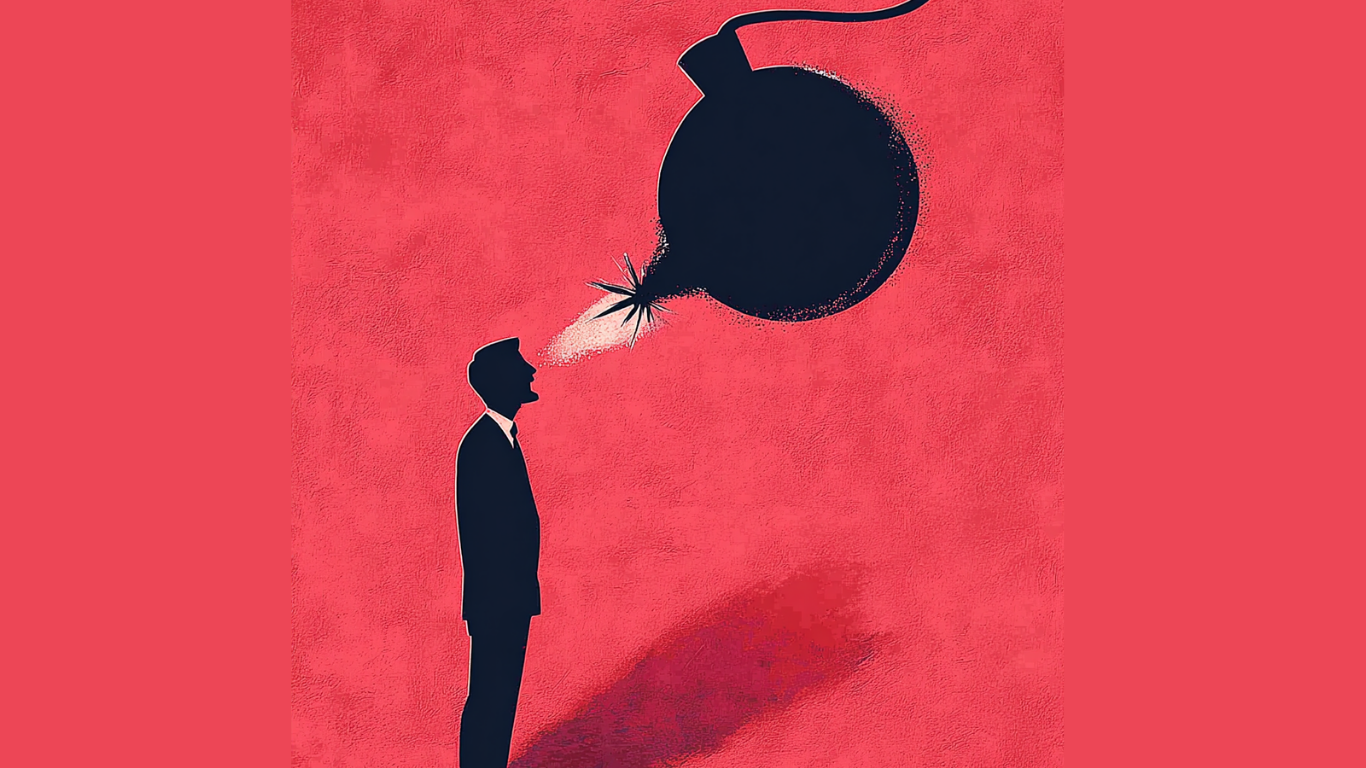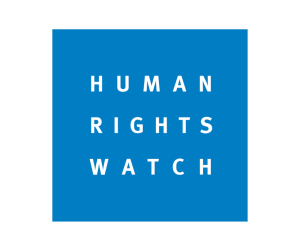In October, the Independent Journalists’ Association of Serbia (NUNS) recorded a total of 33 incidents involving journalists and media workers. A large number of attacks continued to occur during protests organized across Serbia, but a significant increase in threats and dangerous targeting by high-ranking officials was also noted. The police continued the practice of attacking and inadequately handling journalists. Six actual physical attacks were recorded, five of which were carried out by the police. In addition, 19 death threats and threats to the physical safety of journalists were registered, as well as seven other threats to journalists and one attack on media outlets and media organizations.
Attacks on Journalists During Protests: Police Continue Repression
On October 11, a series of attacks, acts of intimidation, and obstruction targeting journalists reporting from protests organized by supporters of the Serbian Progressive Party (SNS) were recorded in several Serbian cities. In Zaječar, police officers assaulted Glas Zaječara journalist Miljko Stojanović, knocking him to the ground and taking his phone. His colleague Anđela Risantijević, who tried to defend him, was pushed away. When Stojanović attempted to report the attack to the police chief, the chief snatched his phone, and officers assaulted him again.
In Novi Sad, police officers repeatedly pushed and prevented Mašina journalist Darija Stjepić from reporting, despite her being clearly identified and repeatedly stating that she was a journalist. A member of the Gendarmerie ordered Storyteller journalist Brankica Matić to stay put as a witness to the alleged inappropriate behavior of a citizen. When she said she had not seen anything, he roughly grabbed her arm and demanded her ID, even though she was clearly marked as a journalist and had repeatedly shown her press card. Beta and Autonomija journalist Dalibor Stupar had his phone seized by Gendarmerie members and was forced away while filming a citizen’s arrest, despite wearing visible press markings and identifying himself as a journalist. He was pushed behind the police cordon, where his phone was later returned.
That same day, in downtown Novi Sad, a man attacked N1 journalist Lea Apro, threatened her, and continued following her after she tried to leave. He then grabbed her arm and forcibly took her phone. The assailant was detained by members of the Gendarmerie.
In Novi Pazar, a team from the A1 portal – two female journalists and a cameraman — was subjected to prolonged detention and a detailed search of their equipment and personal belongings by the police, which prevented them from continuing live reporting. Despite wearing visible press IDs and vests, they were held “for a detailed check.” One journalist was detained for not having her ID card, even though she clearly identified herself as a journalist.
Rising wave of threats: Journalists’ safety seriously endangered
Journalists were exposed to a large number of threats in October. Targeted were journalists Marko Vidojković and Nenad Kulačin, who host the podcast Dobar, loš, zao. On 1 October, Vidojković received a threat via the Instagram page of the newspaper Danas that read: “You, you scumbag, should be killed and thrown to the dogs.” On 17 October, Vidojković received a series of insults, disturbing messages and direct threats of violence against him and his family members on Facebook. One of the messages reads, among other things: “When I see you, you’ll get f***ed — but badly… from behind…”. On 20 October, Nenad Kulačin received a disturbing audio message via Facebook in which a man identifying himself as Saša Trajković launched a stream of vulgar insults and open threats of physical violence that also referred to Vidojković. The message included, among other lines: “Hey, you little monkey, what are you babbling, I’ll f*** you in the mouth, you dead piece of shit, you bastard I’ll f*** your dead mother too, and that rapt tail-haired monkey with you — I’ll f*** you dead, you piece of filth… Who are you insulting, the president of the state? I’ll f*** you in the mouth, dead — you bastard…”
Professor and journalist Dinko Gruhonjić received a threatening and highly vulgar SMS message on October 1, which has been reported to the competent prosecutor’s office.
On 12 October, FAR portal journalist Sergej Ivanov received a telephone threat from an unknown person who said: “Those who write lies about me, something could happen to them…”. The threat followed Ivanov’s post about a possible opening of a lignite mine near Dimitrovgrad, connected to the company Vuković Benz. The topic attracted wide attention, and the threat arrived ahead of the public debate on regulation of the Mazgoš deposit, scheduled for 13 October.
On October 12, a threatening message was sent to the editorial e-mail of the Magločistač portal, stating, among other things, that they should be thrown out into the street and: “…forbid you from doing reporting. I will identify each one of you who work in the newsroom and all of you…”.
The editorial office of the portal Mašina received seven brutal threats after their women reporters covered an event in Novi Sad. The threats were made between October 11 and October 20 in comments on Instagram. An account identifying itself as “predragbelgrade” wrote, “Game is over for you, Mašina!” Bojan Marković commented to the portal’s editorial office: “Slavko Ćuruvija was a journalist too.” Drago Predojević – who has since changed or deleted his Instagram account – wrote to the portal’s editorial office: “Still, that will have to be riddled.” In a comment on Mašina’s live coverage, to the Mašina woman reporter who was reporting from Novi Sad, an account signing as Tomah Milovanović wrote: “She should be locked in a basement and f—ed.”
From the account Rajko Leposavić came the same-day threat: “Aaa you won’t be around much longer, your days are numbered.” And an account named “prodajaautomobilaizuvoza”(imported car sales) wrote: “I f— your mouths, filthy Ustasha mouths. Soon we’ll reveal who you are.” The last threat was sent on October 20, when Duško Leskovac, alongside insults, threatened the journalists with murder: “Anti-Serb scum, the day will come when you’ll be liquidated.”
On 15 October, the Danas editorial office received threats in a comment under one of the portal’s articles. Alongside a string of insults, horrific statements and open calls for violence against journalists, the comment said: “DEATH TO TRAITORS! GO TO HELL, YOU CORRUPT FILTH – MAY A DOG F*** YOUR MOTHER IN THE MOUTH AND MAY THE TURKS IMPALE YOUR CHILDREN ON A STAKE! Because you are a scum, corrupt and terroristic Ustaše, GO TO HELL!”
On 20 October, the editorial team of the Mašina portal received threats via a message on Instagram. The person behind the account Duško Leskovac, alongside insults, threatened the journalists with murder: “You anti-Serb s**t, the day will come when you will be liquidated.” In addition to these threats, the Mašina newsroom received several serious threats, including death threats.
Also, in a comment under a news item on the N1 website, a user who identified himself as Bojan wrote on Monday, 20 October: “We are preparing bombs for N1, because of your whining they look at us like rats. The time is coming when all Ustaše must be expelled.” In another comment, a user Jovo wrote on Tuesday, 21 October: “F**k your mother, are you people normal, people let’s burn N1.”
Professor Aleksandra Krstić received a threatening email. The user of the account Zoran Cvijanović, who previously threatened Philosophy Faculty professor in Novi Sad Smiljana Milinkov and Danas journalist Vojin Radovanović, wrote: “The Black Hand knows everything, a friend.”
Threats and hateful messages were also sent to BIRN journalist Radmilo Marković via a direct Facebook message, in which the sender, among a string of insults, told Marković: “I have to tell you that you’ll run to the holes, you bald vermin.”
Dangerous Statements by Public Officials: A Concerning Trend in the Public Sphere
Dangerous statements coming from public officials represent a serious and alarming form of attack on journalists and the media, indirectly endangering their safety. Such statements create an atmosphere of violence and hostility toward journalists. On October 8, Ana Brnabić, President of the National Assembly of Serbia, referred on the social network X to the media within the United Group as “extremists advocating a violent overthrow of the government.” That same day, Member of Parliament Marjan Rističević, while explaining amendments to the Law on Electronic Media during a regular session of the National Assembly, accused United Group media outlets of “participating in the collapse of the state” and claimed that their programs were “designed for illegal violent activities with the help of foreign factors.” Likewise, Vojislav Šešelj, during an appearance on Informer TV, targeted media outlets within the United Group and called Danas editor Dragoljub Petrović a “traitor,” accusing the editorial offices of these media outlets of being “treasonous.”
On TV Pink, Darko Glišić, Minister for Public Investments, targeted N1 journalists, claiming that the incident in the tent settlement in front of the National Assembly – what he described as an attack – was “the result of everything that has been done over the past year.” He stated: “That dark media kitchen of this criminal Šolak and all those who are the creators of the color revolution has created an atmosphere in which it seems completely normal to kill someone who thinks differently,” accusing journalists Danica Vučenić and Mladen Savatović of inciting violence. On the same television station, SNS Member of Parliament Marjan Rističević again made serious accusations against media outlets within the United Group, saying that “tycoon, illegal media” had incited terrorism, fueled criminal acts for a year, and created the conditions for such acts to occur.
Additionally, Velimir Bulatović, father of a former SNS MP, posted messages on Facebook directed at Veran Matić in response to Matić’s criticism of him and his insults toward journalist Milojko Pantić. Bulatović suggested a right to self-defense and threatened not to forgive Matić for the alleged falsehoods, which can be interpreted as a threat to Matić’s safety.
On October 9, Informer published an article featuring a screenshot of a private email from an international institution sent to Jelena Kleut, a professor at the Faculty of Philosophy in Novi Sad, accompanied by a shameful, inflammatory narrative about “foreign protégés” and “destroyers of Serbia.” The article also targeted Dinko Gruhonjić, a professor and journalist who has for years been subjected to pressure, hate speech, and threats. Such articles further fuel witch-hunts and create an environment in which threats and violence become normalized.
Media Under Attack: Assaults on Newsrooms and Attempts at Intimidation
Attacks on the media have also been recorded. In Kraljevo, during the night between October 7 and 8, unknown perpetrators splashed the facade and windows of the offices of the Sidža magazine with white paint. This incident occurred following the pressure the editorial team had faced the previous day, when unidentified individuals placed stickers reading “Pumping Out” on the newsroom premises.
KRIK Targeted Again: Ongoing Pressure Through SLAPP Lawsuits
Judge of the Belgrade Court of Appeals, Dušanka Đorđević, and her husband have filed a third lawsuit against KRIK journalists over their database “Judge Who Judges”. The KRIK database “Judge the Judges” provides detailed profiles of judges who make decisions in key trials related to organized crime, corruption, and political scandals, including information about their careers, assets, and disputed rulings.
The lawsuit seeks a 10-month prison sentence and a two-year ban on practicing journalism for Bojana Jovanović and Jelena Radivojević, alleging a violation of the right to privacy. This is the third lawsuit Judge Đorđević has filed against KRIK’s journalists, and the proceedings are still ongoing. One civil lawsuit for damages and two criminal complaints have been initiated, which have since been merged into a single criminal case – meaning that two legal proceedings are currently underway in total. Judge Đorđević and her husband claim they only learned during the trial that Jovanović and Radivojević had participated in the creation of the database. However, it was Radivojević herself who had contacted Judge Đorđević for an interview during the course of the investigation. This lawsuit represents a typical SLAPP case—an attempt to pressure and intimidate journalists in order to halt their work on issues of public interest.
All of this points to the continued deterioration of the situation regarding journalists’ safety. Although the number of physical attacks has decreased, October saw a rise in serious threats, including death threats. The police still directly participate in attacks on journalists during coverage of protests, which further deepens the problem, while the investigation and resolution of such cases remain absent. In this way, not only is there no adequate prevention, but a clear message is being sent that such behavior is tolerated and that there is no accountability. High-ranking public officials continue to create a negative atmosphere that further encourages new attacks and threats against journalists.
Election of the REM Council Under the Shadow of Abuse of Power
In October, the process of electing members of the Regulatory Authority for Electronic Media (REM) Council continued, during which new legal violations were observed. On October 21, 2025, the Expert Service of the National Assembly allowed the presence and voting of representatives from nine national minority councils that do not have the status of authorized nominators, even though the Committee’s report from October 14, 2025, clearly established the list of authorized nominators and candidates. In the invitation for harmonization sent by the Committee on Culture and Information to the national councils, it was stated that only one representative from each of the three authorized nominators (the Bosniak National Council, the Albanian National Council, and the National Council of the Hungarian National Minority) should attend the meeting. However, nine additional representatives of national councils appeared, bringing the total number of voters to twelve—directly violating the legality of the procedure. Organizations that are authorized nominators in different categories submitted a request on October 22 to the Committee on Culture and Information and the National Assembly of the Republic of Serbia, demanding that this violation in the election procedure for REM Council members be immediately corrected. On November 3, the Committee for Culture and Information of the National Assembly adopted the request of the organizations and annulled nine votes cast by unauthorized proposers. The Committee amended the list of candidates for members of the REM Council, designating Muhedin Fijuljanin and Ljumturije Ameti as representatives of the Council of National Minorities. After a public hearing with 18 proposed candidates for the REM Council, held on November 14, the Committee decided to send the report and the list of candidates to parliamentary procedure under urgent consideration.
Following these latest legal violations, the Slavko Ćuruvija Foundation, NUNS, NDNV, and CRTA submitted a supplement to their criminal complaint to the Higher Public Prosecutor’s Office for Organized Crime against Dana Gak, Secretary of the Committee on Culture and Information of the National Assembly, on suspicion of abuse of office to influence the outcome of the REM Council election. These organizations had previously, in November 2024, filed a criminal complaint against Committee Chair Nevena Đurić for obstructing the implementation of the amended Law on Electronic Media and for failing to announce the public competition within the legally prescribed timeframe. In May 2025, the complaint was expanded to include Secretary Gak for violating the law during the failed attempt to elect REM Council members. The most recent supplement followed after Gak allowed unauthorized representatives of nine national minority councils to participate in a key stage of the process, provided them with ballots, and accepted their votes as valid – thereby directly influencing the outcome of the voting and violating the Law on Electronic Media.
Analysis of prosecutorial decisions when there are no elements of a criminal offense ex officio
NUNS has published an analysis titled “Prosecution’s Actions When Deciding Not to Initiate Prosecution Ex Officio – Internal Note and Decision to Dismiss: The Border Between Legality and Abuse”. The analysis focuses on two types of decisions: the dismissal of criminal charges and internal notes stating that there is no basis for initiating criminal proceedings. The analysis highlights that an internal note should be an exception, used only when there is no basis for action or suspicion that a criminal offense, prosecuted ex officio, has been committed. The internal note, which is foreseen by a regulation, unlike the decision to dismiss provided for by law, diminishes the rights of the victim as it does not allow the use of objection. This raises concerns, as this practice is often used and could lead to the abuse of this procedural tool.
Declaration on Improving the Safety of Women Journalists in the Western Balkans
The SafeJournalists Network adopted a new regional Declaration on Improving the Safety of Women Journalists in the Western Balkans
The text is open for signatures by journalists’ associations, unions, media outlets, public institutions, civil society organizations, and individual journalists and experts across the region. All interested stakeholders can support the Declaration by adding their signature at the following link by November 25.
Everything about the Declaration and its principles can be found here.




